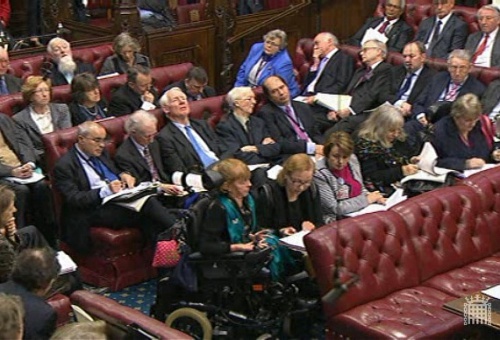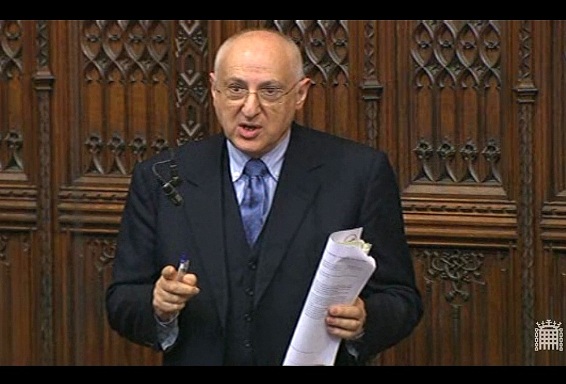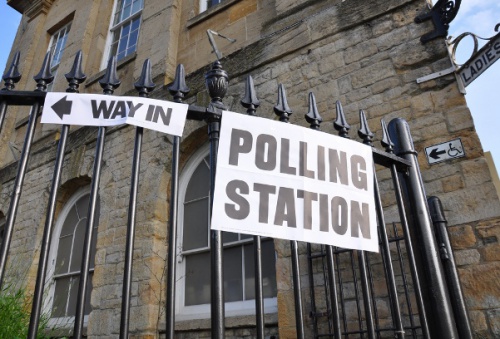My Lords, there are many reasons why I strongly oppose the Bill and why I have spoken against it in the past. But one of the most important reasons why I oppose the Bill is the definition of terminal illness and how many months, weeks or years we have to live. The definition in the Bill gives rise to uncertainty and is therefore terribly open to misinterpretation and abuse. Proponents of the Bill claim that "disabled" and "terminally ill" are distinct from one another. We are told that disabled people can be assured that the Bill is not intended to apply to them. I am not reassured, and I beg the patience of the House while I explain my reasons.
I have personally worked for more than 20 years with very severely disabled people with life-threatening conditions, great numbers of them with the definition of terminal illness. I know about terminal illness—believe me, I know. I know personally and professionally. That is why I wanted to give noble Lords my reasons today, and to take my time to do this, because I feel that it is one of the most important parts of the Bill that we must make safe. I know that the noble and learned Lord, Lord Falconer, would agree with me that we must make this safe for people who may die, who may not otherwise, because of this definition and because of the number of weeks that we are supposed to live or die. That is why I support the noble Baroness, Lady Finlay, and the noble Lord, Lord Carlile, on a reduction of the time limits.
I am fearful of the Bill not least because terminal illness is defined as an
"inevitably progressive condition which cannot be reversed by treatment".
That definition could equally apply to many disabilities, my own included. It reinforces confusion between terminal illness and disability. The fear is that disabled people with progressive conditions will fall within the scope of the Bill. The clause on terminal illness does nothing to dispel that fear.
I remind your Lordships that not a single organisation of disabled or terminally ill people is actively campaigning for this legislation. We need to ask ourselves why. Why will they not campaign for a Bill that gives them autonomy to choose the time when they are to die? On the contrary, growing numbers of national charities are coming out to campaign against it. For example, Scope and Disability Rights UK, which have thousands of members who have progressive conditions, are also joining grass-roots networks of disabled people such as Not Dead Yet UK and the Disabled People's Network. They all agree that it is impossible to create clear blue water between disability and terminal illness and as regards how many months until one might die. However, the Bill is before us now, and I have to accept that I need to do what I can to limit the harm that it would cause to terminally ill and disabled people were it to be enacted. That is why I support the amendment moved by the noble Baroness, Lady Finlay, and any other amendment that would introduce a shorter time limit as a safeguard to the central part of the Bill.
The definition of terminal illness in the Bill starts from:
"an inevitably progressive condition which cannot be reversed by treatment (a 'terminal illness')",
"is reasonably expected to die within six months".
"Treatment which only relieves the symptoms of an inevitably progressive condition temporarily is not to be regarded as treatment which can reverse that condition".
I therefore looked at who the Bill might encompass. The brain, eyes, lungs, kidneys, pancreas, joints and nerves can all be subject to "inevitably progressive" conditions deteriorating at widely differing rates. Various forms of cancer, heart disease and neurological conditions can fit the criteria for "inevitably progressive" at some stages.
Children and young people are born and are surviving with a variety of life-limiting conditions for which the prognosis is very uncertain. Overall, significant numbers of children and adults fall within categories to which the definition,
"an inevitably progressive condition which cannot be reversed by treatment",
is applicable. I found that it is only the fact that most are not,
"reasonably expected to die within six months",
that keeps them outside the scope of the Bill. That is no protection at all, and I will explain why.
It would take only a chest infection or a small change in my muscle capacity for me to be put at risk. Throughout these debates we have heard from the noble Baroness, Lady Finlay, and from other noble Lords in the medical profession who are far more qualified than I, how prognosis is unreliable and that individual life expectancy is virtually impossible to predict with any accuracy. The catch-all of six months sends the invidious message that once you are down, you are on your way out, that once death is on the agenda of life, it outweighs every other consideration. For any newly diagnosed individual, it allows the early seeds of fear and doubt to be sown, perhaps by the individual, perhaps by family and friends, or perhaps by both. Words of hope and encouragement will have to compete against advice and expectation to shop around for a doctor willing to give a prognosis of six months or less. It invites everyone involved in the care and support of the individual to do less than their best. It is hard to believe in the value of life for a person who has been deprived of that belief themselves.
As someone who has come close to death on several occasions during my childhood and adult life, I know how essential it is to have a positive outlook. I am only too aware that there are times, sometimes long periods of time, when one grows weary and one's spirits are low. One believes that one is going to die. That can be for weeks or even months. Has no one heard of fluctuation? When and if you get through that period and if, as in my case, a new ventilation system is suddenly developed, you get better again. Perhaps you have a week, a month or, as in my case, you have another two years. However, during the weary low period when everyone expects that this is the time when you are going to die, you could easily take advantage of an assisted dying exit.
Other disabled and terminally ill people have spoken of enduring such periods for years before their spirits finally lift. People felt that they were going to die. They do not take out pensions. I can tell noble Lords that I do not have a pension. Why is that? It is because everyone was telling me that I was going to die. Please remember that when I want a free lunch.
What pulls me and others through those periods—there are hundreds of others; do not believe that this Bill is for the few because I know of many who would fit these criteria—is the unfailing support, encouragement, love and understanding of those around us, both professionals and friends. It is seeing their efforts and determination to make one feel better, to do what they can—such as invent another ventilator—whatever it takes and whatever the prognosis, that lifts one out of oneself step by step. It makes one want to participate in a shared endeavour and make the best of whatever time is left. Hope is a great healer. When we cannot heal, it is at least a balm and a great comfort.
I am fortunate in knowing that those around me will always do their best for me. They include amazing doctors and nurses who have treated and cared for me. I know that their focus will always be on making my life better, not on providing me with another option. I know that they will always be searching for ways to improve the treatments and the technology to care for me, and I am grateful that I am here because of them. Each time my body weakens, they find another aid, adaptation or medicine which might compensate. Metaphorically, every time I approach life's finishing line, those doctors and nurses do their damnedest to push it further away again. The ventilator I am using now is one example of that. It is this newest invention in ventilation technique that is preventing me having a tracheostomy. I cannot have a tracheostomy because, if I do, I will never speak again. Can noble Lords really imagine that and would they want it? Well, perhaps some might.
Others are not so fortunate in the medical care that they receive, in the support that they get from their families and in the social care available to them to help them live with serious illness and disability. We need to remember that, especially now, when economic austerity has diminished the quality of care and support that one can expect. We should avoid the unthinking assumptions that the lives that we live are the lives that others live. Many seriously ill people's experience of life is not about exercising autonomous control; it is more about being done to than doing. The Bill has all the makings of a law for the strong at the expense of the weak.
Last weekend, I went to see the film "The Theory of Everything", a very engaging and honest biography of Professor Hawking and his contribution to theoretical physics. The film closes with Stephen speaking to a group of the most distinguished scientists. He had outlived his sell-by date by 52 years. He was often in the state of terminal progression, but he is still here. In fact, we are both in competition to see who lives the longest. I was deeply moved when he said, "However difficult life may seem, there is always something that someone can do and succeed at". I have lived my life according to that belief, which is why I am here with your Lordships today. We do not walk that path alone; it requires everyone's optimism and belief in us.
The amendment in the name of the noble Baroness, Lady Finlay, and the later one in the name of the noble Lord, Lord Carlile, go some way to off-setting this very pessimistic Bill. The proponents of the Bill have always argued that their intention is for it to apply to only a very small number of people. That intention will be far better realised if prognosis is set with a much smaller time limit of weeks or, okay, maybe months, but not six months. I urge your Lordships to support this amendment and others of its kind
(Lords Hansard, 16 Jan 2015: Column 1037-1040)
The disability community is made up of people with terminal illnesses. Outside the House today, as noble Lords will know if they have gone out to talk to them, are people sitting in their wheelchairs with terminal conditions saying, "No, this is not about choice—this is not about me asking". They have often been in situations when they have felt so low that they felt that they had no options; their social care and healthcare was bad and they wanted to die. They could have taken advantage of the Bill proposed by the noble and learned Lord, Lord Falconer, because they have a terminal illness. There are at least six people outside these walls today in the freezing cold who have a terminal illness.
There are many people with terminal illnesses in the disability community, and those people have come together to demand that on this Bill we should slow down and think again. They have campaigned for choice and autonomy all their lives, and now they are saying, no, this is not about choice—and we have to listen to them. So please do not tell me that this is not about disabled people. It is very much about us because we are the people with experience of these issues. With the greatest respect, many people who are campaigning for this measure have not experienced these issues. They are people in control of their lives. They are people who fear becoming what they see us as. So I ask, please, that disabled people should be very much a central part of this debate. We have to listen to what they say, even if we do not like what they have to say.
I wish also to make a point of clarification. There seems to be a misunderstanding among noble Lords that I think that terminal illness is about having a chest infection. If I thought that, I would think that I was dying at least three times a year. I am not talking about that. I am talking about life-threatening terminal situations, such as muscle deterioration in the throat, whereby you can no longer eat or drink. That is what I have. Part of the GMC's guidance on terminal illness concerns that process. I refer also to muscle deterioration within the lungs so that you can no longer breathe. That is terminal. Muscle deterioration around the heart is terminal. COPD is terminal. People with these conditions are part of the disabled community. They are out there—go and talk to them. Answer the letters from disabled people who say that this is not about choice. Ask them why they are saying this. Do not make assumptions about them. This is why I felt that I had to intervene at this point.
[...]
[Disabled people] fear that they will take advantage of this legislation when they are at their lowest with no choice. The noble Lord, Lord Low, will understand as much as I do about terminal situations where you do not have choices. These people have said that they do not want this Bill because they know that they might take advantage of it.
(Lords Hansard, 16 Jan 2015: Column 1050-1051)
© Hansard content and Parliament TV still published under Open Parliament License











